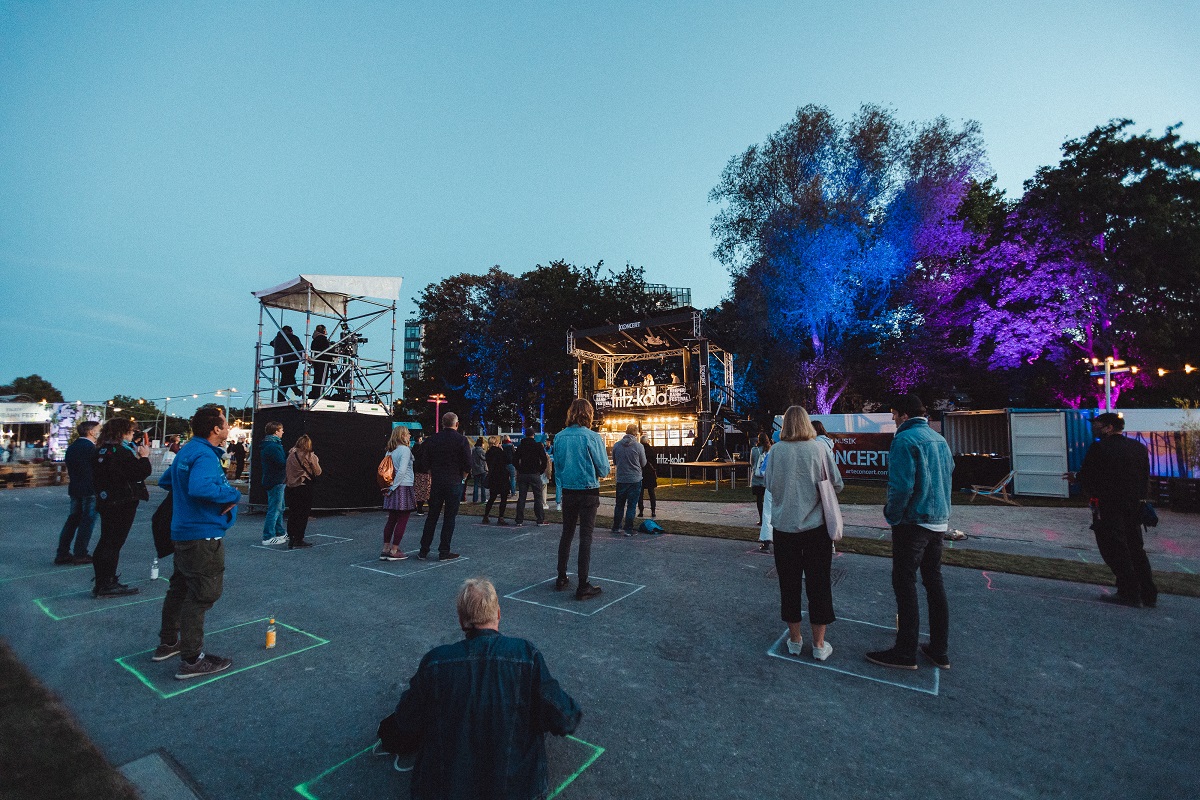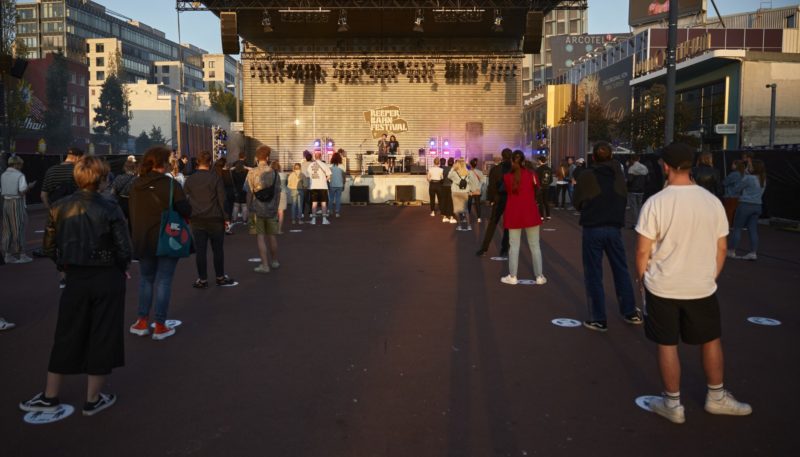Let’s cut straight to chase here: After two days of trying to attend the Reeperbahn Festival 2020 with an open mind I have to admit: I don’t like it this way. But we all know that’s not to blame on anyone who made it possible. Walking the streets of Hamburg’s infamous red light district, past all the beloved venues, it just became very apparent what I miss. And for which there is no realistic scenario to return to soon. But since we are still your beacon of hope and passion: Here are four learnings and even some musical discoveries.
It IS possible to do it – but it is not something to strive for
In the end this is a very personal opinion. To get things straight: Yes, it all worked out fine. The concept was well thought-through and it felt safe. But on the other hand: It felt too safe. Too clean. For me, it didn’t make sense to take part in a festival just to make a point that it can happen. Because this is not the way I would like to see it happen. Actually, experiencing it first hand for the first time (yes, these were my first concerts since March) lead me to thinking about the worth of culture in general: Culture, and especially pop music, is NOT a privilege of the few. It is a mass phenomenon and it should be. It’s got a whole industry behind it for a reason and that is to make the experience possible for the many (or at least the ‘as much as possible’). And no, I don’t mean that contemptously.
Heck, I remember so many gigs without Corona at which there were 12 people in a venue for 100. I don’t mean that in a romantically “indie” way. Those concerts were not what you were aiming for, neither artists, nor bookers, nor venues, nor fans. But still they happened. And even in such a failed state, a concert potentially created a feeling of closeness, of coming together, of a mutual, shared experience. Now, as we are at the mercy of some virus, we are merely allowed to share a certain time and space. Materialized at the RBF through the painted chalk squares on the ground where you were allowed to stay (and “move”). It’s funny cuz it’s sad.

photo by Fynn Freund
Reeperbahn Festival is all about the small venues
This is the most obvious but also the toughest one to handle. For years it’s been the essential RBF-experience to stroll from club to club, not getting into one so stepping into the next, staying there either for 5 minutes or the whole afternoon. Well, that kind of mobility (meaning: unpredictability) is the exact opposite of what was doable this year. As a result, the lack of it made me realize what I really missed and why I couldn’t endorse this experience. And it is a possible for a (normally) still growing RBF. More people in a limited amount of clubs has already been a problem in the past. Now that we are furthermore facing the danger of loosing several locations to the ongoing crisis in the event industry, I’m honestly lacking the fantasy for a new normal.
Merging digital and analogue experiences is harder than you think
First of: Hats off to the whole team behind the Reeperbahn Festival. As always. But to be honest, offering several and extended streaming possibilities of concerts, awards and talks is one thing. The user experience is another. In the end the attendant might just be a little too unpredictable and defiant to really make his digital/analogue experience seamless. Nonetheless: The way of adding digital layers to the actual live experiences around the Reeperbahn is a path definitely worth to keep on following.

The future is looking ,,, distance (Photo by Photo by Marvin Contessi)
More outdoor, more fun?
It’s definitely been a blessing that the increased outdoor activities were welcomed by sunshine and warm temperatures these past days. It’s a little harder to imagine what will happen with the kind of “main stage” areas, that the Reeperbahn Festival slowly starts to establish when Hamburg shows it more natural, wet and brisk face. It does make sense though to develop the Heiligengeistfeld into the missing link and center court.
And the music?
Finally, yes, there was some fine music going on. Of course there was. The line-up might not have been as extensive but it once again reflected and lived the Keychange-approach. The central Award-Show, the Anchor Awards, once more higlighted a pretty descent mixture. And though German wunderkinder Ätna took it home, I tried but couldn’t really resis the tunes of Eefje de Visser. And of course it’s nice to see that Arya Zappa, who we’ve praised on here before, gathered some more of the well-earned starlight. Apart from that one of the rare euphoric moments at this years Reeperbahn for me was sparked by Shybits. A British/American three-piece living in Berlin that sounds like Wavves would’ve listened to a little more post-punk and drank too much bubble tea. Oh and in the end, I came to like a German rapper – who would’ve seen that coming? But Negroman‘s laidback, funk and jazz-infused sound paired with lyrics that consisted of more than listing brands really felt good at that point. So I guess, in the end, the Reeperbahn Festival did what it always did best: transcend barriers. Only that the one true barrier these days felt even more oppressing.



